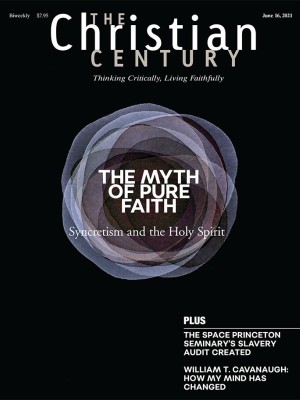July 4, Ordinary 14B (2 Samuel 5:1-5, 9-10)
Whatever else David is, he is recognizably human and not a fairy-tale king.
The author of Samuel does not present a sanitized picture of David. Thanks be to God.
Instead, we have received this story of an endlessly complex figure, admirable one moment and horrifying the next. I’m inclined to agree with those who believe there was a historical David, despite the relative lack of archaeological evidence, since it is doubtful that the author of Samuel would have invented such a flawed hero from whole cloth. Whatever else David is, he is recognizably human and not a fairy-tale king.
In this Sunday’s reading, the tribes of Israel recall that David was a military leader under Saul, and they join David’s people of Judah in recognizing his kingship. Moshe Halbertal and Stephen Holmes observe in The Beginning of Politics: Power in the Biblical Book of Samuel that this decision suppresses a potential civil war. Yet there are also costs to centralizing political authority.
Read our latest issue or browse back issues.
As he establishes his reign, David is in a precarious position. He has kept his hands clean in the violent deaths of King Saul, his sons, and his general Abner. But some still consider David a usurper. Shimei, a member of Saul’s tribe of Benjamin, likely is not the only one who will nurse a grudge against David for decades (2 Sam. 16:7–9), one that begins at this moment of public unity in 2 Samuel 5.
To fully establish himself, the new king needs a capital city. In his biography of David, David Wolpe writes that “at the time Jerusalem was a tiny backwater.” In Wolpe’s view, it demonstrates David’s greatness as a leader that he sees the city’s strategic advantages: it is considered part of neither Israel nor Judah, and the surrounding hills aid in defending it.
Yet as he conquers Jerusalem, David does something he has previously been wise enough to refrain from doing.
Wolpe notes that David is a monarch who listens. He learned the value of paying attention to the counsel of those around him when he encountered Abigail in 1 Samuel 25. At that point, he was still a fugitive, on the run from King Saul. Abigail convinced him not to kill all the males in her husband’s household over an insult, saying that if he refrains, “my lord will not have on his conscience the staggering burden of needless bloodshed or of having avenged himself” (NIV). In the Talmud, Abigail—who marries David after her husband dies of heart failure—is counted among seven female prophets.
One wonders what happens between that moment and this Sunday’s reading. In Geraldine Brooks’s The Secret Chord—a novel based on a careful reading of Samuel and parallel accounts in Chronicles—Abigail becomes David’s counselor. He continues to listen to and follow her advice in both political and personal matters. Near the end of her life, speaking with a confidant, she calls David vain and then says, “We may love him and yet not be blind to what he is. I’ve come to understand that he is what he is because of his faults.”
The biblical Abigail is with David when he becomes king of Judah (2 Sam. 2). She’s mentioned just one more time in Samuel, as the mother of Chileab (3:3)—it’s not clear when she dies. Brooks writes in her novel that after Abigail’s death, “David’s way of dealing with his grief was to look for a problem that would absorb his mind. He threw himself fully into the search for a new capital. . . . He fixed on a hilltop redoubt named Yebus.”
Conquering a city is one thing. There was plenty of battle and conquest back and forth among the peoples in the region before, during, and after David’s 40-year reign. But David—perhaps now lacking Abigail’s wise counsel—abuses the trust that he has earned from the soldiers of Israel and Judah. In the portion the lectionary omits from the reading (5:6–8), he tells them to go beyond the minimum of bloodshed required to take the city from the Jebusites. He indulges in the sort of vengeance Abigail once talked him out of.
Specifically, David orders the slaughter of people who cannot walk or see, over what appears to be an ancient version of trash talk. On the face of it, these verses are here to explain Leviticus 21:18, where being blind or lame disqualifies someone from being considered presentable to make offerings to the Lord. Then there is the fact that these blind and lame individuals are described with a phrase that can be translated either “those whom David hates” or “those who hate David.” The New Oxford Annotated Bible has one scholar saying that “get up the water shaft” is a metaphor, but whatever that action is, its purpose is nonfiguratively “to attack the lame and the blind.” Ultimately, none of these explanations resolves the troubling aspect of this passage.
The lectionary does us a disservice by not giving us the full reading, 2 Samuel 5:1–10. Without the story of the Jebusites, we see only David triumphant, David whom the people love, David whose strategic genius picks a capital others would have missed, David whom soldiers trust and whose orders they follow—even when the reasons behind them are dubious, with tragic consequences.







